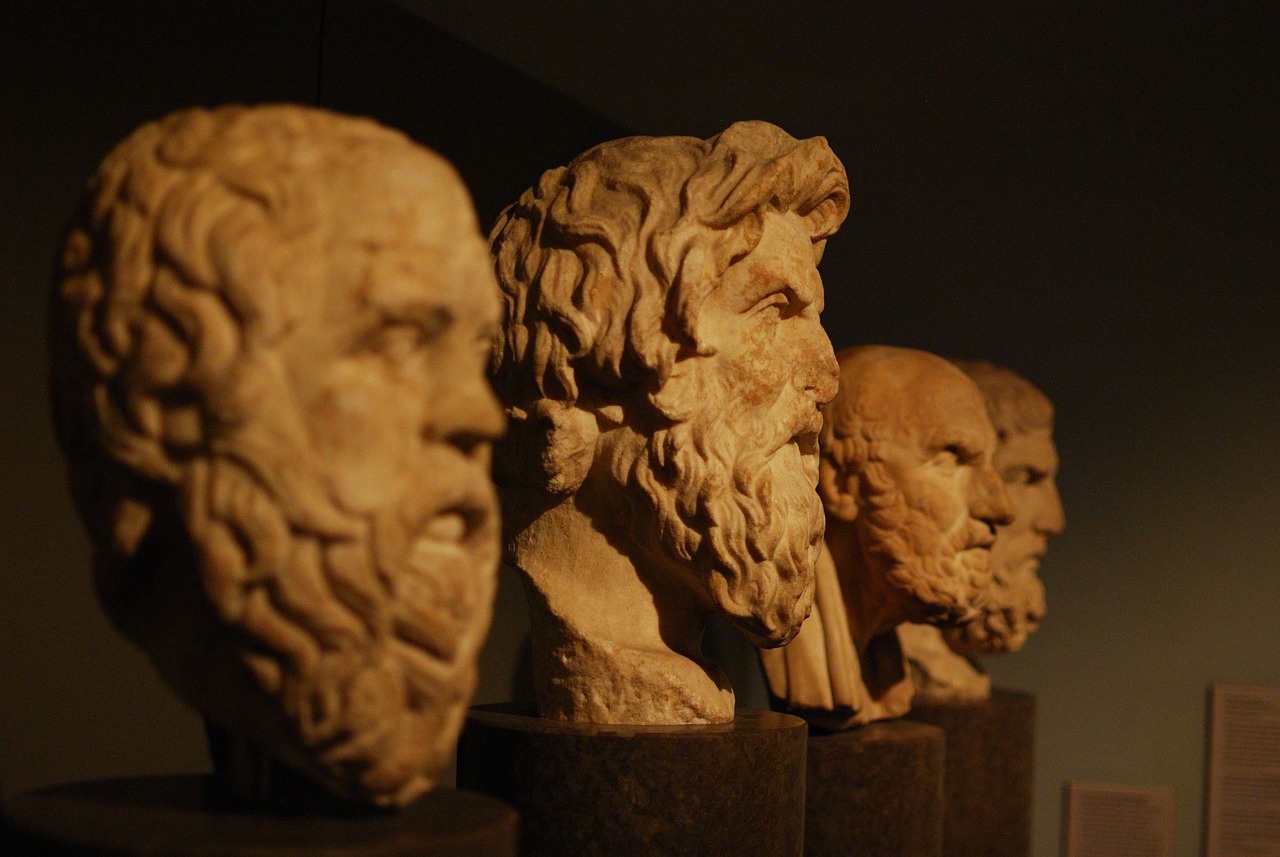The Influence of Ancient Chinese Philosophy on Modern Thought
Chinese philosophy, with its rich tapestry of beliefs and ideologies, has woven a lasting influence on modern thought across the globe. The ancient wisdom of Confucianism, Daoism, and Legalism continues to shape contemporary ideologies, ethical frameworks, and societal norms in profound ways.
Confucianism, with its emphasis on filial piety, social harmony, and ethical governance, serves as a guiding light in modern education, business practices, and governmental policies. The principles of Confucius resonate through generations, fostering a sense of respect, duty, and order in various aspects of life.
On the other hand, Daoism's philosophy of natural harmony, simplicity, and balance offers a refreshing perspective on spirituality, wellness, and environmental sustainability in today's fast-paced world. The Daoist belief in the interconnectedness of all things reminds us to seek balance and alignment with the rhythms of nature.
Legalism, known for its strict adherence to laws and authority, leaves a lasting legacy in modern governance structures and legal systems. The influence of Legalist doctrines can be seen in political strategies, the concept of rule by law, and the pursuit of order through strict regulations.
The concept of Yin and Yang, symbolizing the balance of opposing forces, continues to shape contemporary thinking on gender equality, health practices, and interpersonal relationships. The complementary nature of Yin and Yang serves as a reminder of the interconnectedness of dualities in life.
Sun Tzu's timeless treatise, The Art of War, remains a cornerstone in the realm of business and strategy, offering valuable insights into competitive tactics, leadership principles, and strategic planning in various industries. The wisdom distilled in this ancient text transcends time and resonates with modern-day challenges.
Traditional Chinese medicine, with its holistic approach to wellness and healing, integrates ancient practices like acupuncture, herbal remedies, and Qi Gong into modern healthcare systems and wellness routines. The blend of ancient wisdom and modern science offers a comprehensive approach to well-being.
Confucian ethics, grounded in humanism and moral values such as benevolence, righteousness, and propriety, continue to influence contemporary debates on ethics, social responsibility, and cultural identity. The enduring principles of Confucianism provide a moral compass in navigating complex ethical dilemmas.
Daoism's emphasis on harmony with nature inspires modern initiatives for sustainable development, ecological conservation, and the adoption of green technologies. The Daoist philosophy of living in harmony with the natural world serves as a guiding principle in promoting a sustainable future for generations to come.

Confucianism's Enduring Impact
Exploring how ancient Chinese philosophical concepts such as Confucianism, Daoism, and Legalism continue to shape contemporary ideologies, ethics, and societal norms in the modern world.
Confucianism, with its emphasis on filial piety, social harmony, and ethical governance, has left a profound mark on various aspects of modern society. In education, the values of respect for elders, emphasis on learning, and cultivation of moral character can be traced back to Confucian principles. Similarly, in business practices, the importance of ethical conduct, integrity, and trust mirrors the teachings of Confucius. Even governmental policies often reflect Confucian ideals of benevolent leadership, social order, and meritocracy.
Moreover, the enduring influence of Confucianism extends beyond individual behavior to shaping collective norms and values. The emphasis on hierarchy, duty, and loyalty in Confucian thought continues to underpin social relationships and organizational structures in many cultures. The emphasis on harmony and balance in interpersonal interactions echoes the Confucian emphasis on social cohesion and mutual respect.
In essence, Confucianism serves as a moral compass that guides individuals and societies towards virtuous conduct, harmonious relationships, and ethical governance. Its timeless wisdom continues to inspire and inform modern thought, ethics, and societal norms.

Daoism's Philosophical Relevance
Daoism, also known as Taoism, offers a unique perspective on life and existence that continues to resonate with individuals seeking spiritual fulfillment and inner peace. At the core of Daoist philosophy is the concept of the Dao, representing the fundamental principle that underlies all things in the universe. The Daoist belief in natural harmony emphasizes the importance of living in alignment with the rhythms of nature, embracing simplicity, and seeking balance in all aspects of life.
One of the key principles of Daoism is the idea of Wu Wei, often translated as "non-action" or "effortless action." This concept encourages individuals to flow with the natural course of events, avoiding unnecessary struggle and resistance. By practicing Wu Wei, individuals can cultivate a sense of tranquility and acceptance, allowing life to unfold organically.
Furthermore, Daoist teachings on balance and the interplay of opposites, symbolized by the Yin and Yang symbol, have influenced modern approaches to holistic health, wellness, and personal development. The concept of Yin and Yang represents the complementary forces of nature, illustrating the interconnectedness of all things and the dynamic equilibrium that exists in the universe.
Daoism's emphasis on mindfulness, meditation, and self-awareness has found resonance in contemporary practices aimed at promoting mental clarity, emotional well-being, and spiritual growth. The Daoist pursuit of inner harmony and connection with the natural world continues to inspire individuals to seek meaning and purpose in a fast-paced and often chaotic modern society.

Legalism's Legacy in Governance
Legalism, an ancient Chinese philosophy characterized by strict laws, centralized authority, and harsh punishments, has left a significant legacy in modern governance systems worldwide. The core tenet of Legalism, emphasizing the rule of law over moral virtue, continues to influence contemporary legal frameworks and political strategies.
By prioritizing efficient governance through clear regulations and strong enforcement mechanisms, Legalist principles have shaped the development of legal systems in many societies. The concept of rule by law, focusing on objective statutes and judicial procedures, reflects the enduring impact of Legalism on the administration of justice and maintenance of social order.
In contrast to the Confucian emphasis on ethical conduct and the Daoist pursuit of natural harmony, Legalism advocates for a pragmatic approach to governance based on practicality and control. This pragmatic perspective has informed modern governance practices, particularly in contexts where stability and compliance are paramount.

Yin and Yang in Contemporary Thinking
The concept of Yin and Yang, originating from ancient Chinese philosophy, continues to influence contemporary thinking in various aspects of life. In modern society, the idea of balance and complementary forces represented by Yin and Yang is evident in multiple domains, including gender equality, health practices, and interpersonal relationships.
When we look at gender equality, the Yin-Yang philosophy emphasizes the importance of harmonizing the feminine (Yin) and masculine (Yang) aspects within individuals and society. This holistic approach recognizes the value of both qualities and promotes the idea that true balance and equality come from embracing and integrating these dualities.
In health practices, the concept of Yin and Yang is often applied to achieve wellness and harmony within the body. Traditional Chinese medicine utilizes this philosophy to diagnose and treat ailments by restoring the balance of Yin and Yang energies. This approach highlights the interconnectedness of physical, emotional, and spiritual well-being.
Moreover, in interpersonal relationships, the Yin-Yang principle underscores the idea of complementarity and interdependence. Just as Yin and Yang are interdependent and cannot exist without each other, relationships thrive when there is a harmonious balance of giving and receiving, assertiveness and receptivity, action and reflection.
By understanding and applying the Yin-Yang philosophy in contemporary thinking, individuals and societies can strive for equilibrium, resilience, and interconnectedness in various aspects of life, fostering a deeper appreciation for the harmonious interplay of opposing forces.

The Art of War in Business and Strategy
When it comes to the realm of business and strategy, one ancient Chinese text stands out as a timeless guide - Sun Tzu's The Art of War. This classic work on military tactics and warfare has transcended its original context to become a staple in modern business literature. The strategic principles outlined in The Art of War offer valuable insights into competitive dynamics, leadership strategies, and the art of negotiation in today's corporate landscape.
Just as generals once studied Sun Tzu's teachings to outmaneuver their enemies on the battlefield, modern business leaders turn to The Art of War to navigate the complexities of the market. The concept of strategic positioning, emphasized in the text, has direct applications in product development, market positioning, and competitive analysis.
Moreover, Sun Tzu's emphasis on the importance of understanding the enemy and leveraging strengths and weaknesses resonates with contemporary business practices. In a world where competition is fierce and markets are volatile, the wisdom of The Art of War provides a strategic framework for anticipating challenges, seizing opportunities, and achieving long-term success.

The Art of War
The Art of War, written by the ancient Chinese military strategist Sun Tzu, is a timeless masterpiece that transcends its original context of warfare and offers profound insights into the realm of business and strategy in the modern world. Sun Tzu's strategic principles, focusing on tactics, deception, and adaptation, have been widely adopted by business leaders and entrepreneurs seeking to gain a competitive edge in the corporate battlefield.
One of the key teachings of is the importance of understanding both your own strengths and weaknesses as well as those of your competitors. Sun Tzu emphasized the significance of strategic planning, intelligence gathering, and the element of surprise to achieve victory. In today's fast-paced business environment, these principles are applied to market analysis, product development, and competitive positioning to outmaneuver rivals and secure success.
Furthermore, Sun Tzu's emphasis on the psychological aspects of conflict, such as morale, leadership, and communication, has been integrated into modern leadership practices and organizational management. Effective communication, decisive decision-making, and the ability to adapt to changing circumstances are all essential components derived from that are crucial for navigating the complexities of the contemporary business landscape.
Moreover, the concept of strategic positioning, as advocated by Sun Tzu, has become a cornerstone of business strategy, where companies strive to identify and exploit their unique competitive advantages while simultaneously undermining the strengths of their rivals. By applying Sun Tzu's principles of flexibility, speed, and resourcefulness, organizations can enhance their strategic capabilities and achieve sustainable growth in dynamic markets.
In essence, serves as a practical guide for modern businesses looking to thrive in competitive environments by leveraging strategic thinking, adaptability, and innovation. By embracing Sun Tzu's teachings, companies can navigate challenges, seize opportunities, and emerge victorious in the ever-evolving landscape of commerce and industry.

continues to be a guide for modern business tactics, competitive strategies, and leadership principles in various industries.
Sun Tzu's The Art of War continues to be a guide for modern business tactics, competitive strategies, and leadership principles in various industries. The timeless wisdom found in this ancient text has been applied by business leaders worldwide to navigate the complexities of the corporate landscape. By emphasizing the importance of strategic planning, adaptability, and understanding the competitive landscape, The Art of War provides valuable insights into achieving success in the modern business world.

